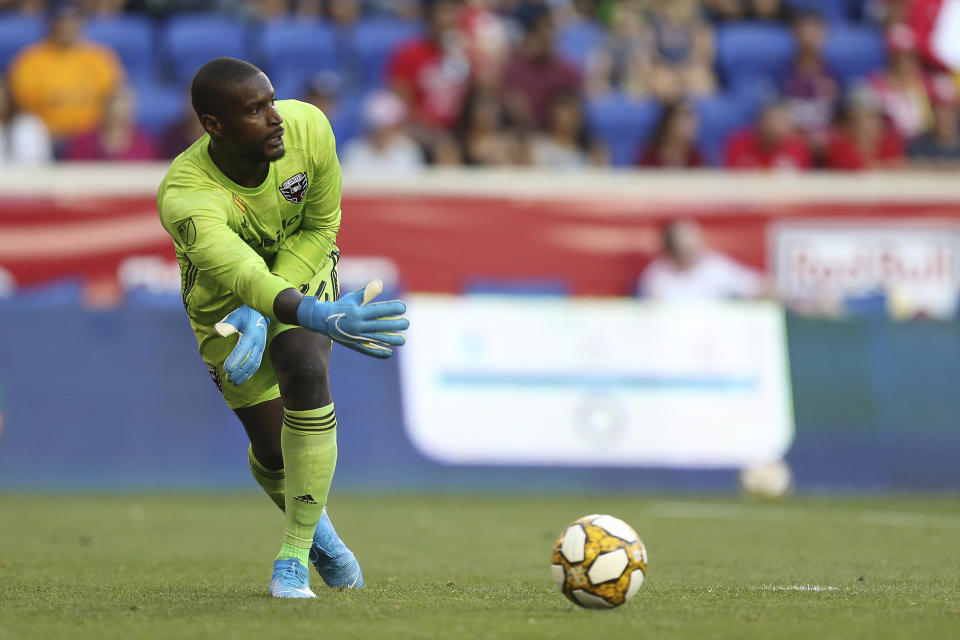How the success of the MLS, NBA quarantine bubble hinges on players: 'You will be celibate for six weeks'
With 26 Major League Soccer teams preparing to stream into Orlando beginning next week, and NBA squads preparing to follow them for their own return-from-coronavirus tournament, there’s growing concern among the players involved about both leagues’ ability to keep COVID-19 from penetrating their so-called bubbles.
Much of the fear centers on what many perceive as the weakest link: local workers, who unlike the athletes and team staffers would not be required to remain on hotel grounds, away from their families and/or significant others, for up to six weeks this summer. The leagues maintain that the risk of being infected by a bus driver or food server is low. They’re probably right.
In fact, the bigger risk to the health of the players is probably the players themselves.
“You’re literally taking a bunch of virile athletes and saying, ‘You will be celibate for six weeks,’ ” said Dr. Dara Kass, an emergency medicine physician and Yahoo News medical contributor. “I think the bigger question is, how well isolated are these players going to be?”
NBA and MLS unions have already been pushing back on the restrictions. Last month, NBA players association chief Michele Roberts referred to the bubble idea as “incarceration.” The MLSPA successfully lobbied for a shorter tournament than its league initially floated, but the grousing has only grown louder.
“We aren’t children who need supervision,” D.C. United goalkeeper Bill Hamid wrote Monday in a since-deleted Twitter post. “I don’t agree with being locked up on the campus, and I’ve said that from the beginning.”

He’s far from alone. And with around 3,500 combined players and staff from the NBA and MLS in Florida — which on Tuesday reported its highest number of coronavirus cases yet — expecting nobody to sneak out just isn’t realistic.
“I think that human nature says that that will happen,” an MLS veteran, who requested anonymity, told Yahoo Sports.
MLS and its players union have discussed the possibility, multiple sources said, although the punishment for those who break the rules has not yet been agreed on. League sources confirmed that players’ movements will not be tracked, electronically or otherwise. It’s going to be an honor system, basically. “It’s not like there’s going to be armed guards at every exit,” one MLS source joked.
The NBA has not yet revealed specific guidelines, but MLS teams will remain separated from each other only during their first week in Orlando. After that, they’ll be able mingle with players and employees of other clubs while still respecting social distancing. They will have access to masks and diversions like cooking classes, as well as to high-end spas, restaurants and golf courses.
They’ll also be tested constantly. However, that could actually encourage a false sense of security.
“Unfortunately, what we’re going to find is places where people are being tested regularly will not practice social distancing or wear masks because they’re going to say ‘I tested negative,’ ” Kass said. “The players are a high-risk group.”
And eventually, after weeks cooped up in a hotel, some young, rich, testosterone-fueled athletes are inevitably going to blow off some steam. Some will seek out sex like Kyle Walker did; the Manchester City defender made headlines across England in March for hosting a sex party just hours before imploring his 1.5 million Twitter followers not to visit with their loved ones.
But players and staff could be tempted to sneak away from the complex for other reasons, too.
“The celibacy part of it is certainly a big thing to ask, but it would be naïve to think that there aren’t guys in our league who have other vices or addictions that they’re going to have take care of during that time, too,” the player said.
Said Kass: “If someone wants to smoke pot, they have to get it from somewhere.”
Athletes, like everyone else in society, are entitled to their private lives. But how they manage their down time in Florida — and how closely they follow the precautions meticulously laid out by the infectious disease experts informing the leagues’ return-to-play plans — will go a long way toward determining the success of the experiment.
Ultimately, the players will have to prevent each other from breaching the bubble. Yet peer pressure only goes so far. And like the greater population, some people are taking the risks more seriously than others.
“We’re supposed to be checking in with our medical staff every day, telling them where we’re going and things like that,” the MLS player said. “Then I go on Instagram and see guys in large groups, or indoors with other people. It’s frustrating.
“There are guys on my team I don’t trust not to do stuff they shouldn’t the night before a game,” he continued. “Now, we’re not even talking just the guys on your own team, we’re talking about 26 teams involved, and potentially jeopardizing the health and safety of all the other people they come into contact with every day.
“It’s about as airtight as you can get,” the player added. “But I’d be lying if I said that I believe everybody will respect the rules.”
More from Yahoo Sports:
